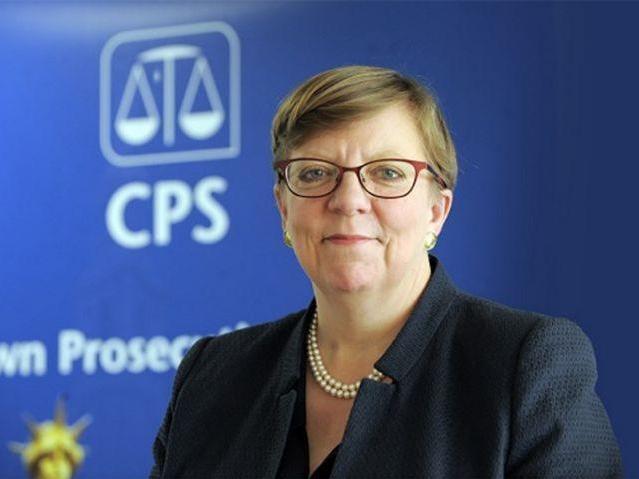Director of public prosecutions criticised for 'insufficient leadership' over failings that saw evidence withheld from defence lawyers
'Delayed and collapsed trials that result from disclosure errors only service to put a further strain on already tight resources'

Weak leadership by the director of public prosecutions failed to tackle failings that led to innocent people being wrongly imprisoned, MPs have found.
The Justice Committee warned that the impact of long-term problems with the disclosure of evidence had been gravely underestimated by the Crown Prosecution Service.
The collapse of a series of rape cases last year sparked alarm at revelations that social media posts and messages proving suspects’ innocence had not been presented to courts.
In January, the director of public prosecutions Alison Saunders was attacked after claiming that no one innocent was in prison as a result of the failings.
But she later told the Justice Committee that disclosure errors had resulted in people being wrongly jailed and caused miscarriages of justice.
Ms Saunders announced that she was stepping down at the end of her five-year term in April, insisting that she was not pressured to leave by the government.
The Justice Committee concluded that her “insufficient focus and leadership” was part of the reason long-term issues have gone unresolved.
“The Committee states ownership of performance rests with the director of public prosecutions, who did not sufficiently recognise the extent and seriousness of failures,” a statement said. "The report concludes that this was not aided by data collected by the Crown Prosecution Service (CPS), which may have underestimated the number of cases which were stopped with disclosure errors by around 90 per cent.”

A CPS review completed last month found 47 rape and sexual offence cases were stopped within six weeks because evidence had not properly been shared with the defence, but MPs said a “poor data collection regime” meant many more cases affected by disclosure errors – including that of Liam Allan - were not counted.
The Justice Committee also called on the government to consider increasing funding across the criminal justice system, which is currently under pressure from rising crime, terrorism and the impact of post-2010 budget cuts.
“Delayed and collapsed trials that result from disclosure errors only service to put a further strain on already tight resources,” it noted.
MPs said the principles of disclosure do not need to be changed, but failings had been caused by the police officers and prosecutors applying them.
Bob Neill, a barrister and Conservative MP who chairs the committee, said: “Correct disclosure of evidence by the police and the CPS to the defence is fundamental to ensuring a fair trial – but is too often regarded as just an administrative headache.
“This is not acceptable. As we’ve seen in high profile cases since last year - disclosure failings are extremely damaging for those concerned and can have a permanent life-long impact. These failings have caused miscarriages of justice and – as the Director of Public Prosecutions even admitted to us – some people have gone to prison as a result.”
Police and prosecutors have pointed to the explosion of evidence caused by smartphones, which can each contain tens of thousands of images and messages.
Mr Neill acknowledged that while new technology had made the issue more challenging, technology could also help resolve problems, as could better skills, resources and guidelines.
“The failings are symptomatic of a system under immense strain: without change, we cannot expect the public to have confidence in the criminal justice system,” he added.
A National Disclosure Improvement Plan has already been put in place by the CPS, the National Police Chiefs’ Council (NPCC) and the College of Policing, including improved training and protocols to hand all multimedia evidence to defence lawyers digitally.
A separate review of disclosure by the Attorney General is ongoing.
The process should see material collected by the police during an investigation made available first to prosecutors and subsequently, and subject to certain rules, to defence teams for use in the ongoing case.
Police are legally obliged to examine all evidence and pass it on, whether it supports or hinders prosecution, but have been accused of “unconscious bias” against suspects by the Criminal Bar Association.
The scandal peaked in December when judges threw out unrelated prosecutions against Liam Allan and Isaac Itiary, with both men acquitted after the discovery of evidence that should have stopped them ending up in court.
Police had downloaded the contents of complainants’ phones but failed to pass on the information they contained to the prosecution or defence, claiming thousands of messages were irrelevant.
Mr Itiary had been charged with the statutory rape of a 14-year-old girl but messages showed she had claimed she was 19, while Mr Allan’s alleged victim had told friends she wanted and enjoyed sex she later reported as rape.
Later that month, a man who had been in prison for rape for four years was released after the discovery of messages showing the sex was consensual.
While the cases provoked shock among the general public, lawyers told The Independent that defence lawyers were routinely “fighting to get” evidence investigators should have already reviewed.

A report issued in July last year by HM CPS Inspectorate and HM Inspectorate of Constabulary warned of widespread failures by both police and prosecutors, finding that officers failing to comply with requirements were “often ignorant” of their disclosure responsibilities.
“Non-compliance with the disclosure process is not new and has been common knowledge amongst those engaged within the criminal justice system for many years,” the damning report concluded.
Police officers and prosecutors interviewed by inspectors said they believed limited resources and a lack of time were the main causes, even though “long-standing” problems predate recent budget reductions.
Responding to the report Director of Public Prosecutions Alison Saunders said: “Getting disclosure right is a fundamental part of a fair criminal justice system. I have been very clear that addressing the long standing problems in managing disclosure across the criminal justice system is my top priority."
“There is an unprecedented focus on finding solutions, and extensive action has been underway over the past year to bring about the necessary change not just in how cases are handled, but in the wider culture within the CPS and policing. The National Disclosure Improvement Plan, published jointly with the police in January, is already having a positive effect. This is not a quick fix. We will evaluate the measures taken, and agree further commitments to ensure there is continuous improvement.
She added: “We will consider carefully the findings and recommendations of the Justice Select Committee.”
National Police Chiefs' Council Lead for Criminal Justice, Chief Constable Nick Ephgrave said the report "recognises the challenges to the justice system and the work that is already being undertaken through the National Disclosure Improvement Plan."
He added: "There is now an unprecedented commitment and focus on finding long-term solutions to the issues that exist throughout the entire justice system. Police have already established disclosure champions at chief officer level in every force to improve and maintain disclosure standards, as well as implemented local disclosure improvement plans between the CPS and individual police forces. In addition, around a thousand practitioner champions have attended seminars across England and Wales to drive improvements in their local force areas."
Bookmark popover
Removed from bookmarks